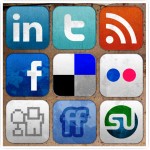 The evidence is clear: content is still king and blogging does work. The more (quality) content you have on your web site, the more traffic and leads and clients you get.
The evidence is clear: content is still king and blogging does work. The more (quality) content you have on your web site, the more traffic and leads and clients you get.
The August issue of Entrepreneur Magazine, reports that, “sites that have 401 to 1000 pages get nine times more visitors than sites with 51 to 100 pages”. Hubspot reports that consistent bloggers saw a 4.2x increase in the number of leads without four months, and reduced their lead costs by 60 percent.
The reasons are equally clear. Search engines like fresh content and so do readers who use those search engines to find that content. When someone has a legal issue, they’re not looking for an attorney’s “about” page, they want information that will help them understand their problem and their options for solving it. The attorney who provides that information is the attorney who gets more traffic, more leads, and more clients.
But it takes time to write good content and doing it consistently is hard work. That’s why so many people who start a blog don’t keep it up. (95 percent of blogs are abandoned, according to Technorati, long before they see an appreciable return on their investment.)
But you’re not like other people, are you?
“If you knew you could earn an extra $20,000 per month by blogging, and it would take you an hour a day, five days a week, would you do it?”
Let me ask a question: “If you knew you could earn an extra $20,000 per month by blogging, and it would take you an hour a day, five days a week, would you do it?”
If the answer is “no,” stop reading.
Of course I don’t know how much you will earn by blogging any more than I know how much the attorney-bloggers in the top 5% earn through their blogs. I’m pretty sure they are happy with their “top 5% results,” however.
And here’s some good news: you don’t have to spend an hour a day on your blog for it to be effective. An hour or two a week will probably be enough. That’s because:
- You’re already reading in your field; you don’t have to invest a lot of extra time for blogging purposes.
- You can write. If you can pass the essay portion of a bar exam, Â you probably write well enough to write a blog (although you might want to have someone edit out the legalease).
- You can get help. Your staff can do research, find articles you can incorporate into your blog, write first drafts and even write finished posts. If you don’t have staff, you can outsource.
- You don’t have to post every day; once or twice a week, done consistently, is enough to put you in the top 5%. Even once or twice a month can bring you more business.
What are you doing now to market your practice? Could you use some of that time for blogging? If you’re not doing anything right now to market your practice, don’t you think you should?
In the past, my blogging has been sporadic. Stretches of consistency followed by stretches of “I’m busy with other projects and I’ll get back to blogging when I can”. Recently, I decided to take my own medicine. Not only have I started posting consistently again, at my wife’s urging I’ve been doing it every day. Even though it’s only been a couple of weeks, I’m already seeing a lot more traffic, subscribers, and new business.
Is blogging for every attorney? No. If you have other ways to build your practice and they are working, you don’t need a blog. It is hard work and it is a commitment. (Actually, the writing really isn’t hard, what’s hard is the commitment.) But if you’re looking for something to bring in more business, if you have more time than money or you’re willing to make the time because you can see why it would be worth it, if you like to write or have someone on staff who does, then blogging is a great way to rise above the competition and get into the top 5%.













Do lawyers need a blog?
Sorry, but you didn’t miss much.
From a technological standpoint, not much has changed since I switched to the blog format. I’ve changed the color and layout and added some new plug-ins, mostly having to do with social media integration, but not much else.
My site has grown because I focused on creating content, not on the latest bells and whistles. Content creates value for visitors, allows you to demonstrate your expertise, and brings traffic from search engines and from word of mouth. And so the number of subscribers to my newsletter has grown and the number of blog subscribers has grown and I have continued to sell products and services.
Do you need a blog? If you want to get more clients online I think you do.
A blog has several advantages over a static web site. As you update your content, search engines are notified and they bring visitors. As those visitors see the solutions you provide, they may (a) take the next step toward hiring you, (b) connect with you by subscribing to your newsletter or your blog feed or commenting on your posts, or (c) tell others about you via social media.
Your blog allows prospects and referral sources to see you “in action”. Your content is not just puffery about how great you are it is an exemplar of your abilities. As visitors become familiar with your style and hear your “voice,” as they get to know and trust you, your preeminence grows, your traffic grows, and your client base grows.
You can set up a blog yourself  in about an hour. WordPress makes is easy. There are many free and inexpensive “getting stated” videos available and you can hire people inexpensively to do it for you. Contact me if you would like some referrals.
Once you have your own blog, you control it; you don’t have to wait for tech support to do updates for you, you can do them yourself. It’s as quick and simple as using a web browser. And, other than paying for hosting (under $10/month), it’s free.
What about content–do you have enough to say? Trust me, you have enough. There is an endless amount of material you can supply. Everything from posts about the law and procedure in your practice areas, success stories you helped created, general business (or consumer) advice, guest posts from experts (referral sources) in allied fields, and much more. A post can be as short as a few paragraphs and as simple as you commenting on something you found on another web site or blog or in the news. And you can outsource content creation, too.
A blog may seem to be a big commitment but think of it as the front door to your online office. You won’t be there 24/7 but your presence will be. If you write an offline newsletter, publish articles, or do any public speaking or networking, you are already doing the things that are done online through a blog.
If you have a web site, you have something you can point to and that’s good. But you have to do the pointing. If you want free traffic, you need a blog.